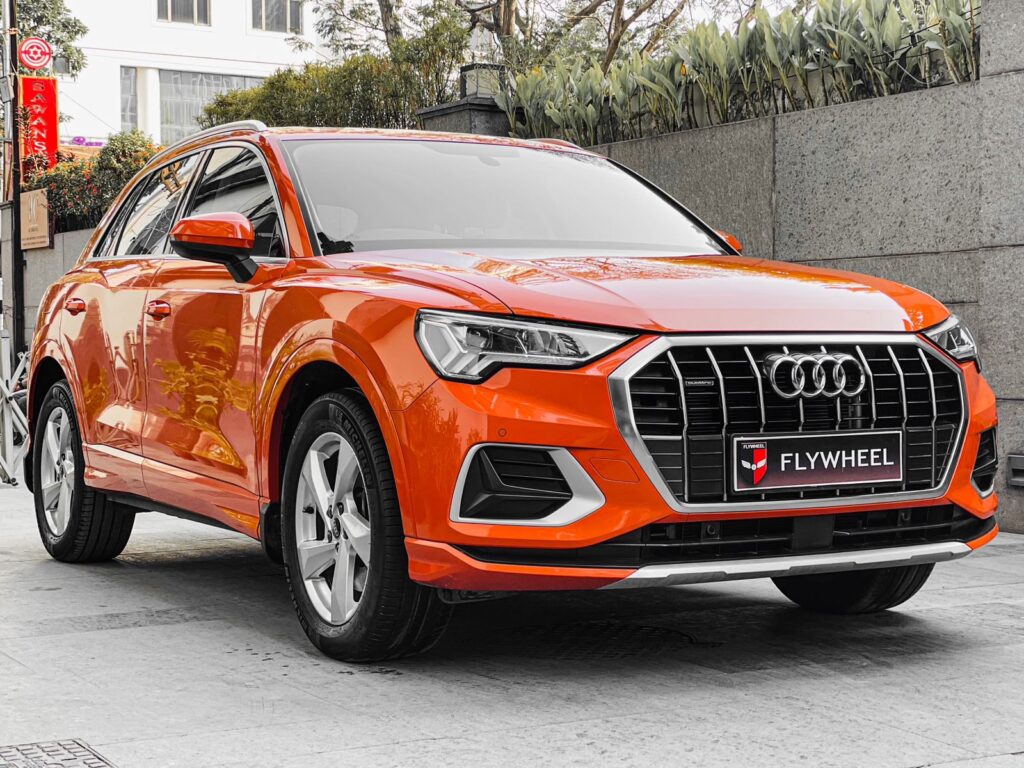Cars
cars buy
flywheel
flywheel cars in india
flywheel cars in kolkata
FLYWHEEL INDIA
flywheel kolkata
preowned cars
preowned cars for sale
preowned mercedes gla car
second
second hand car
second hand car in kolkata
second hand mercedes car
second hand mercedes gla price in india
used cars
used cars buy
used cars kolkata

Buying a Used Car? 10 things to Look for When Buying a Ultimate Used Car

Buying a Ultimate Used Car
Buying a used car can be a cost-effective and practical decision, but it requires careful consideration and attention to detail. Whether you’re a first-time buyer or a seasoned car enthusiast, there are several crucial factors to keep in mind when scouring the used car market. In this comprehensive guide, we’ll delve into the key aspects you should look for when purchasing a used car to ensure you make a well-informed and satisfactory investment.
- Budgeting and Research:
Before embarking on your used car journey, establish a realistic budget. Consider not just the initial purchase price but also ongoing costs such as insurance, fuel, and maintenance. Once you’ve determined your budget, conduct thorough research on the make and model you’re interested in. Online reviews, consumer reports, and reliability ratings can provide valuable insights into the vehicle’s performance and potential issues.
- Vehicle History Report:
One of the first steps in evaluating a used car is obtaining its vehicle history report. This report provides a detailed account of the car’s past, including accidents, title issues, odometer readings, and maintenance records. Services like Carfax or AutoCheck can provide this information, helping you uncover any hidden problems that may affect the car’s value or safety.
- Inspection by a Qualified Mechanic:
While a vehicle history report is essential, it doesn’t replace a thorough physical inspection by a qualified mechanic. Schedule a pre-purchase inspection with a trusted mechanic who can assess the car’s mechanical condition, including the engine, transmission, brakes, and suspension. They can identify any existing or potential issues that might not be evident to the untrained eye.
- Exterior and Interior Condition:
Scrutinize both the exterior and interior of the car. Look for signs of rust, dents, or scratches on the body. Check the condition of the tires, ensuring they have sufficient tread depth and are evenly worn. Inside the car, inspect the seats, dashboard, and controls for wear and tear. A well-maintained interior can be indicative of the owner’s overall care for the vehicle.
- Test Drive:
A test drive is a crucial step in the buying process. Pay attention to how the car handles, accelerates, and brakes. Listen for unusual noises and vibrations. Test all features, including air conditioning, heating, radio, and electronic components. A test drive not only helps you assess the car’s performance but also allows you to gauge your comfort and satisfaction with the vehicle.
- Mileage and Age:
While low mileage is generally desirable, it’s essential to consider the car’s age as well. A low-mileage vehicle that has been sitting idle for an extended period may have its own set of issues. Conversely, a car with higher mileage that has been consistently maintained might be a more reliable option. Strike a balance between mileage and age to make an informed decision.
- Ownership and Service History:
Understanding the car’s ownership history is crucial. A car that has changed hands frequently or has a history of multiple owners may raise concerns. Additionally, a comprehensive service history demonstrates that the vehicle has been well-maintained. Look for regular oil changes, scheduled maintenance, and repairs performed by reputable mechanics.
- Vehicle Identification Number (VIN) Check:
Run a VIN check to verify the authenticity of the car’s identity and uncover any potential issues associated with the vehicle. This step can help you avoid purchasing a stolen or salvaged vehicle, providing an extra layer of security in your decision-making process.
- Market Value Comparison:
Before finalizing your decision, compare the asking price of the used car with its market value. Online tools and resources can help you determine a fair price based on factors such as the vehicle’s make, model, year, mileage, and overall condition. Negotiate with the seller if the asking price seems higher than the market value.
- Warranty and Return Policy:
If possible, opt for a used car that comes with a warranty. Many dealerships offer certified pre-owned programs that provide additional peace of mind. Additionally, inquire about the seller’s return policy in case you encounter unforeseen issues shortly after the purchase.
Conclusion:
Buying a used car involves careful consideration and diligence to ensure you make a sound investment. By thoroughly researching the vehicle, obtaining a comprehensive history report, conducting inspections, and considering factors such as mileage, age, and ownership history, you can confidently navigate the used car market. Armed with this knowledge, you’ll be well-prepared to find a reliable and well-maintained used car that meets both your budget and transportation needs.
Read More: Used Cars





More Interesting Car Blogs to Read :
- Certified vs. Regular Used Cars: 10 Compelling Reasons Certified is Superior
- Pre-owned Audi S5 Sportback: A User Experience of Owning a Luxurious and Powerful Car
- 10 Powerful Steps to Navigate India’s Pre-Owned Car Market Successfully
- 7 Common Mistakes to Avoid When Buying a Pre-Owned Vehicle
- Top 10 Family-Friendly Used Car In India: Empower Your Drive
Ranked as the top used car dealer in Kolkata, Flywheel specializes in offering a wide range of premium vehicles to our clients. Our unwavering commitment to customer satisfaction and uncompromising dedication to quality set us apart in the industry.

